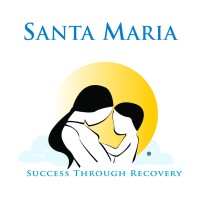Partnership Spotlight:
Santa Maria Story
Santa Maria Hostel is one of Texas’ largest multi-site residential and outpatient substance use disorder treatment centers for women, and one of a very few to offer a full continuum of services for women who are pregnant or parenting. This month, I was able to speak with Marcia Chaney, who has worked in this space for decades.
Can you tell me a little bit about Santa Maria’s story and how it got started?
Santa Maria was started in 1957 by a woman who had just graduated from St. Thomas. She noticed that there were a lot of young women who had been kicked out of their homes because of pregnancy, addiction, and behavior issues. They were in a place where they were emotionally stable enough to function inside of existing services, so she started Santa Maria for them. To meet people where they were. It was modeled after a European concept, how they went about caring for the disenfranchised, by embracing them and getting them ready to be a part of society. By the 80’s and 90’s it was professionalized, and we began using evidence based treatment models and reaching out to pregnancy and postpartum women. By the 2000’s, we had a huge focus on mental health and trauma.
Why women?
Women were underserved. Historically and even in modern day. We wanted to serve them because they were the basis of the family. It’s difficult to care for both mother and child, so people shied away from it. But we know that generationally, caring for mom cares for their children, and the generations after that.
The official mission of Santa Maria Hostel is to empower women and their families to lead
healthy, successful, productive and self-fulfilling lives. We ensure that by our own
services, as well as our partnerships with the justice system, CPS, and the prison
system. These populations have a deep need. We start with treatment and building
recovery capital. From there, services are tailored to the client. Whether that’s trauma
counseling, healthcare, housing, or education. Everyone’s needs are different. But the
basis of this is the two generation approach, we include the whole family.
Is there a story in particular that touched your heart?
I write all of the stories for our organization. Sometimes things look like they’re getting worse –
but then I realized, maybe there were just things that we couldn’t say before. Maybe they’re talking about it more. That gives me hope. The one that hits me the most is a person who was
one of our STARS trafficking clients. She came through treatment and then came to housing.
She was one of the first clients from our justice department partnership, but she didn’t stay. She
had a relapse and went back out. What touched me about her was her story. She knew she was
trans from a very young age. She struggled because her father was very masculine. She was
the oldest, and her father would traffik her and her sisters. He was constantly mocking her. She ran away from home and of course was groomed by someone older who was violent. Once he was arrested, she was on the streets. It was terrifying to be on the streets because she was trans. She was just so brilliant and creative and incredible. Her favorite singer was Selena. We would talk for hours. It was a story of the unbelievable tenacity of the human spirit. She stays with me.
What’s next for the organization?
We are building something called the Texas Change of Mind Collaborative! It’s ten agencies in SouthEast Texas, all of whom have attempted to embed brain science into their programs. We are focusing on child and mother bonding and how the brain is developing, what mom needs to know how to do for the best outcome. It’s a lot of social and emotional development work.
